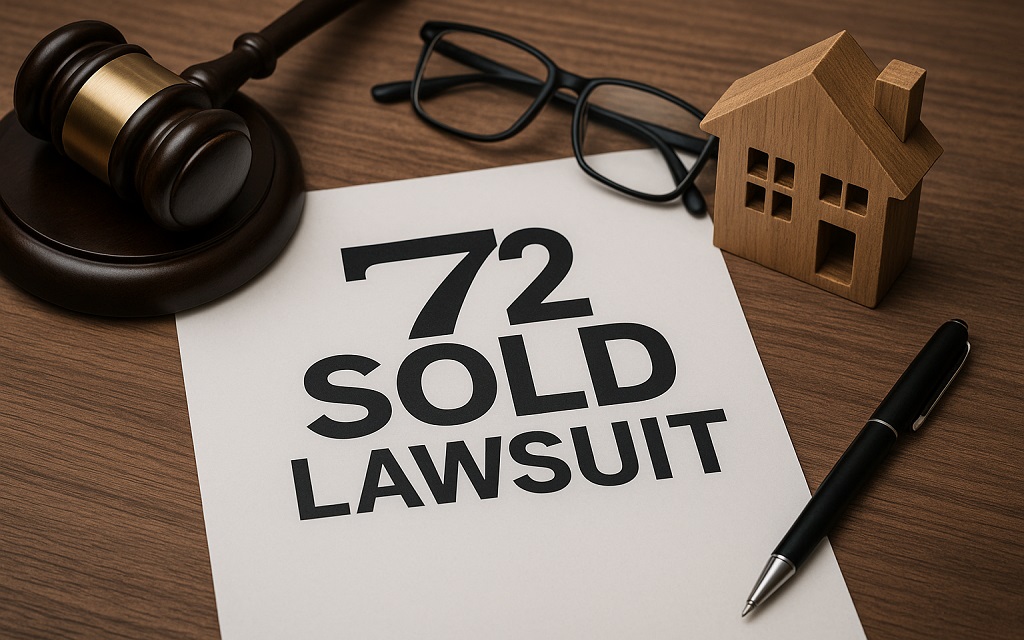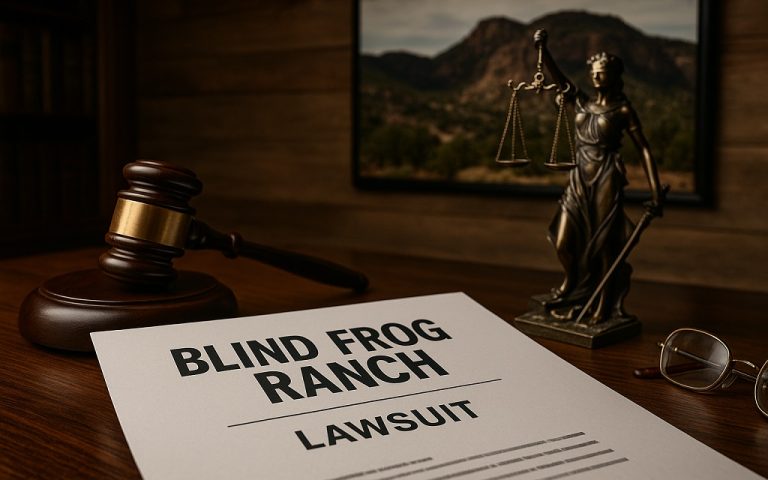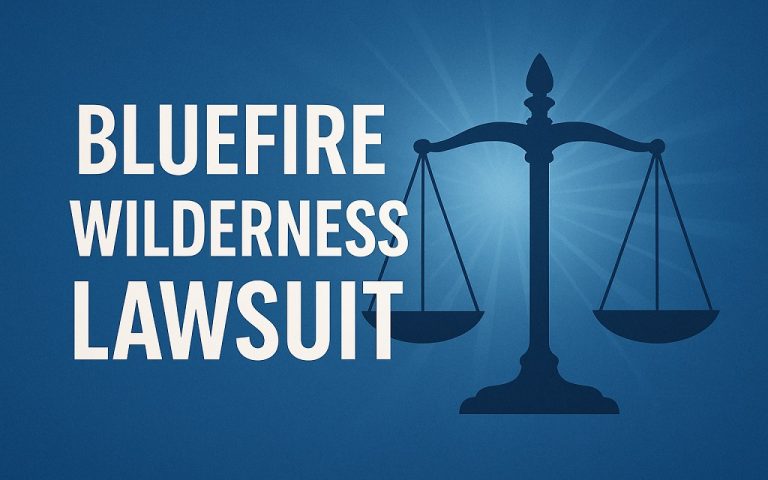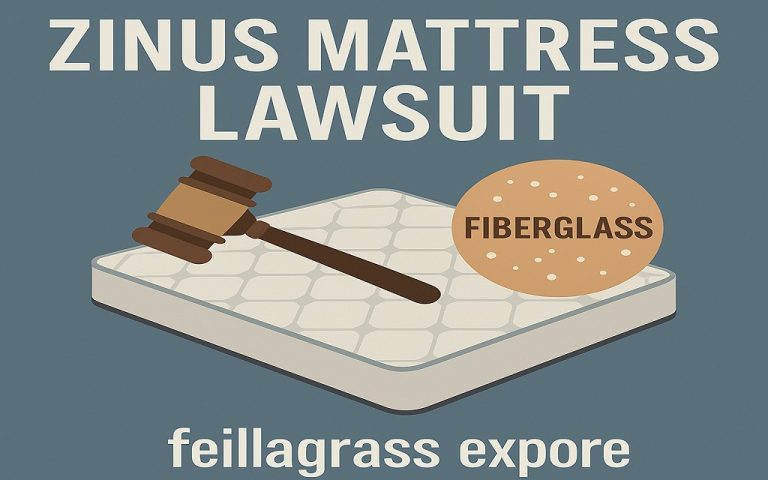You may have been curious about the reality behind the 72 Sold lawsuit after seeing news about it. Due to increasing uncertainty on the internet, many homeowners, real estate brokers, and legal experts now seek accurate updates regarding the 72 Sold lawsuit. Some facts highlight partnerships with Keller Williams, while others highlight false advertising and contract conflicts.
It is essential to know what is known and what is still a matter of speculation. This thorough summary explains the legal facts, consumer rights, and recent events surrounding the 72 Sold lawsuit. You will discover how the case impacts future real estate practices across the country, as well as sellers and brokers.
What Is the 72 Sold Lawsuit?

You may have heard claims about a lawsuit against 72 Sold. Understanding the distinction between online rumors and verifiable filings is crucial. Although litigation is frequently mentioned in blogs and social media posts, as of October 2025, court records show no certified consumer class action. You should know that 72 Sold itself denied those allegations. The company described them as misinformation and defamation. The publication released a detailed blog post addressing false claims and describing the rumors as part of online attacks.
72 Sold operates a real estate program that markets fast sales to homeowners. The company promotes a unique process where agents sell homes in short timeframes, often in under two weeks. It claims that homes listed through its system achieve higher prices than traditional listings. The company’s slogan highlights speed and convenience. Despite the strategy’s popularity, many complaints bring up concerns about transparency, cost, and promises.
You should know that the 72 Sold lawsuit story often mixes three issues:
- Misunderstandings about its fast-sale marketing model
- Complaints filed with consumer agencies
- Corporate litigation involving Keller Williams and its executives
Understanding the separation between these issues helps avoid confusion and clarifies what truly affects homeowners.
Who Owns 72 Sold and How It Operates
You should know who controls the business before assessing any legal exposure. 72 Sold was founded by Greg Hague, an Arizona attorney and entrepreneur. He launched the brand in 2018 in Scottsdale, Arizona. Keller Williams Realty, one of the biggest brokerage networks in the US, is a partner of the business. According to public records, Gary Keller, one of Keller Williams’ co-founders, owns roughly 49% of 72 Sold.
This ownership connection was included in a 2024 corporate lawsuit brought by John Davis, the former CEO of Keller Williams. Davis accused Keller Williams leadership of unfair business conduct and listed 72 Sold as one of several connected entities. You must understand that this case focuses on company governance, not consumer fraud or homeowner damages.
Operationally, 72 licensed agents for train sales used its marketing system. Agents apply local advertising campaigns and rapid showing schedules to create urgency among buyers. They rely on professional photos, digital exposure, and price positioning. The company markets itself as an alternative to traditional open-house or MLS-driven approaches.
Some agents see the program as a lead-generation partnership. Others view it as a distinct brokerage brand under a national marketing umbrella. That structure becomes relevant when courts evaluate liability. If a consumer sues for misrepresentation, lawyers must decide whether to sue the local agent, the brokerage, or 72 Sold’s corporate entity.
What Claims Sparked the 72 Sold Controversy?
You should know the key allegations that generated public discussion. Several online sources summarize the following issues:
- False or misleading advertising. Critics say 72 sold promised unrealistic timelines or profit guarantees.
- Hidden fees or unclear commissions. Some sellers reported higher closing costs than expected.
- High-pressure tactics. Some homeowners claimed that agents urged them to accept early offers.
- Failure to meet contractual timelines. A few complaints alleged that listings extended beyond the advertised period.
- Violation of consumer protection laws. Commentators suggested that the marketing could fall under state false-advertising statutes.
You should not accept those claims without proof. Many remain unverified or arise from isolated experiences. However, trends in customer feedback might highlight risks associated with corporate practices.
72 Sold is the subject of consumer complaints filed with the Better Business Bureau (BBB). The majority include a miscommunication or a fee misunderstanding. The BBB page claims that the company usually replies promptly and that the majority of problems are settled. That response pattern supports the company’s claim that transparency increased in 2024 and 2025.
How Has 72 Sold Responded?
You should know how 72 Sold defends its reputation. In 2024 and 2025, it issued public statements denying any false-advertising practices. Its blog accused certain media outlets of spreading defamatory content. The company explained that no homeowner class action exists and that its marketing complies with real estate advertising laws.
72 Sold also clarified its collaboration with Keller Williams. It described the partnership as a legitimate business alliance. It emphasized that its agents follow state real-estate licensing requirements and ethical rules. The company also adjusted its public claims. It stopped using phrases such as “sell in 72 hours” and began describing the process as an “accelerated sale system.”
This change lessens possible exposure in accordance with truth-in-advertising guidelines. It demonstrates an understanding of changing standards for consumer protection. These modifications should be interpreted as proof that 72 Sold monitors legal risk and adjusts its wording to stay in compliance.
How Does the Law Address Advertising in Real Estate?
You ought to be aware of how real estate marketing is governed by US law. Consumer protection laws prohibiting deceptive advertising are enforced in every state. The Federal Trade Commission (FTC) regulates misleading or unfair business activities at the federal level. When an advertisement falsifies a significant fact that influences consumer choices, it is illegal.
False claims or omissions in real estate advertisements may result in liability under Arizona Revised Statutes Section 44-1522. Many states follow similar standards. Real estate brokers also fall under each state’s real estate department for licensing discipline.
If a seller believes an agent made false claims, the seller may file:
- A civil complaint for misrepresentation or fraud
- A complaint with the state real estate department
- A small-claims action for damages within statutory limits
You should know that written proof matters most. Examples of primary evidence include promotional materials, emails, and screenshots. Whether an agent or company purposefully misleads a customer is decided by the courts. The complainant bears the burden of proof if the company provided written notice of all conditions.
How Does 72 Sold React to the Keller Williams Lawsuit?
You may wonder how the Keller Williams corporate dispute connects to 72 Sold. In 2024, Gary Keller and associated companies were the target of a RICO and breach-of-fiduciary-duty complaint brought by former KW CEO John Davis. 72 Sold appeared as a co-defendant because of Keller’s ownership stake. The complaint alleged self-dealing, misuse of company assets, and coercion of agents to promote affiliated ventures.
The case drew attention because it involved high-level brokerage governance. Legal analysts note that Davis’s allegations remain unproven. Federal courts compelled parts of the dispute into arbitration in 2025.
For homeowners, that case holds indirect relevance. It demonstrates how partnerships and profit-sharing structures can complicate accountability. If you hire an agent through a national marketing system, ownership links may affect where and whom you can sue. Lawyers refer to that as piercing the corporate veil.
It is essential to know that such issues matter when corporate defendants argue that they only provide advertising services, not direct brokerage functions. A judge may decide liability based on who signed the contract, who handled funds, and who made representations.
What Do Recent Market Changes Mean for Sellers?
You must understand how the broader real estate environment shapes these problems. A settlement negotiated by the National Association of Realtors (NAR) in 2024 changed commission laws nationwide. More open disclosure of buyer-broker pay is now required of agents. That reform forced many programs, including 72 Sold, to adjust contracts and marketing materials.
Under the new rule, sellers may negotiate each side’s fee separately. That flexibility reduces confusion about who pays commissions. A company that fails to explain fees now risks claims under state unfair-trade statutes.
Industry data shows that the U.S. median days-on-market in 2025 is about 44 days. That statistic helps evaluate any “fast-sale” claim. If a company advertises an eight-day average, courts may ask for proof supporting that rate. Such evidence could include transaction logs, verified sales records, or audited data.
You should use those benchmarks when you compare options. A transparent agent will share objective market metrics and avoid unrealistic promises.
What Rights Do Sellers Have if Misled?
You should know your legal remedies. If you suffered financial loss after relying on false statements, you may have several options.
- Misrepresentation claim. You may recover damages if you prove that false statements caused loss.
- Breach of contract claim. You may sue if the company failed to perform as agreed.
- Consumer-protection claim. You may seek statutory damages under your state’s deceptive-practices law.
- Rescission. You may void the contract and recover your listing costs.
- Regulatory complaint. You may alert your state’s real estate department.
Statutes of limitation differ by state. In Arizona, most such actions must begin within two years of the discovery of the violation. You should act quickly if you intend to file. Consult a lawyer specializing in consumer or real estate law.
You must also read the arbitration clause. Many real-estate contracts require arbitration rather than court litigation. Arbitration may limit class actions and require individual hearings. That can affect your recovery strategy.
What Evidence Strengthens a Seller’s Case?
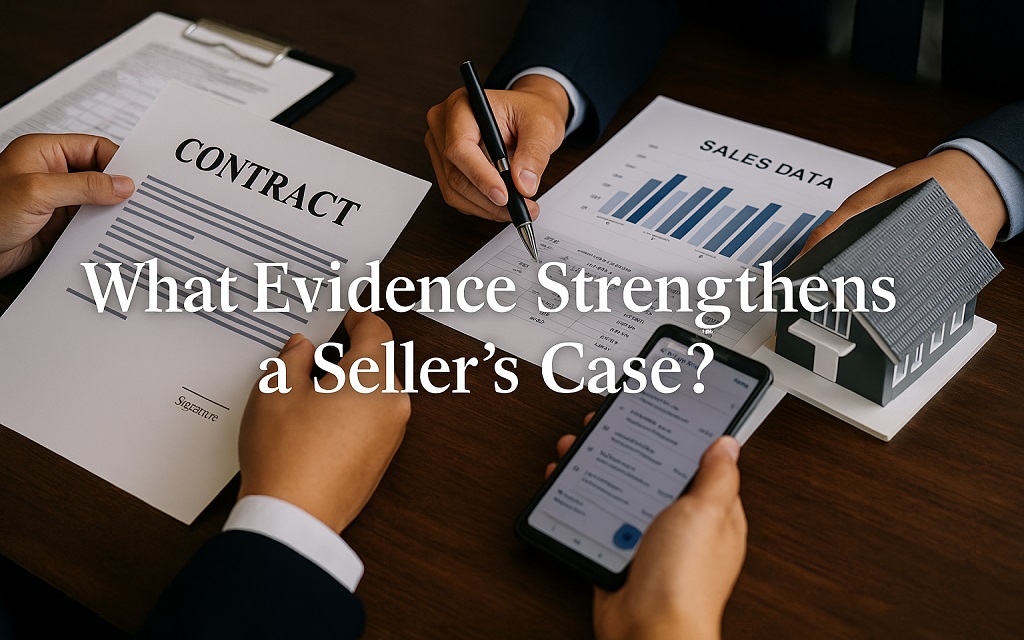
You should collect documents before pursuing a claim. Courts rely on evidence, not memory.
Important items include:
- Listing agreements and written contracts
- Brochures, advertisements, and screenshots from websites
- Text messages or emails with assurances or promises
- Proof of financial loss, such as comparative valuations
- Notes from meetings with agents
Evidence showing a direct causal link between the company’s promise and your decision holds the most significant weight. A lawyer will organize that material to prove misrepresentation or breach.
You should also request performance data through discovery if litigation begins. Courts may order the company to produce sales records. These records can show whether or not there is statistical support for claims of speed or higher cost.
How Are False-Advertising Claims Judged?
When assessing matters involving misleading advertising, judges adhere to a specific framework. They examine five elements:
- A particular claim made in advertising.
- A false or misleading nature of that claim.
- Consumer reliance on the claim.
- Actual or potential harm.
- Connection between the statement and the harm.
The FTC Policy Statement on Deception guides most analyses. Courts look at the “reasonable consumer” standard. If an average person had been misled, the claim may violate the law even without intent to deceive.
The phrase “sold in 72 hours” may be misleading to customers if it actually means “listed within 72 hours.” Similar ambiguity has been penalized by courts in past cases, such as FTC v. Cyberspace.com LLC (2001), when fraudulent solicitations were considered deceptive marketing. Legal experts ought to keep an eye on how these guidelines change in relation to digital advertising in real estate settings.
What Can Law Firms Learn from the 72 Sold Situation?
You should view this case as a study in risk management. Law firms advising brokerages must emphasize truthful marketing and clear disclaimers. Contracts should specify that timelines are estimates, not guarantees. Disclosures should define what “fast sale” means.
Regulatory compliance training can reduce exposure. Agents should know state laws and document all representations in writing. Brokerages should maintain complaint-handling procedures and internal audits.
For consumer lawyers, the 72 Sold debate highlights emerging opportunity areas. Class-action lawyers may monitor new brokerage models for violations of consumer protection laws. If customers claim that the terms are unconscionable, lawyers may also investigate arbitration-clause claims.
What Can Homeowners Learn?
You must stay vigilant before signing any real estate agreement. Modern advertising often emphasizes speed and ease. You should focus on accuracy and accountability.
Practical advice includes:
- Read every clause before signing.
- Ask about commission splits and any referral fees.
- Request proof of marketing performance.
- Check BBB and state records for complaint history.
- Compare at least two agents and one alternative model.
Those steps protect you from confusion or disappointment. A written record preserves your leverage if problems arise later.
What Is the Future of 72 Sold and Similar Models?
Analysts anticipate that cash-offer and fast-sale models will continue to increase in popularity. According to data, almost 20% of American sellers in 2025 will take non-traditional possibilities into account. Shorter turnaround times and flexibility are what customers want. Companies offering such models will face stronger regulation.
72 Sold continues to expand nationally. It has access to thousands of agents because it collaborates with Keller Williams. The business makes investments in technical advancements and brand recognition. It emphasizes transparency and compliance after earlier criticism.
Future litigation may depend on how well it maintains accurate disclosures. If its marketing aligns with performance data, risk remains low. If discrepancies appear, class-action lawyers could return.
You should watch updates from real estate law bulletins and regulatory agencies. Ongoing oversight will determine whether 72 Sold becomes a model of reform or a subject of precedent.
Seller Checklist Before Signing Any Program
You should follow this legal and practical checklist:
- Obtain all written materials, including fee tables and marketing plans.
- Confirm the total commission percentage.
- Ask which agent holds the listing license.
- Verify advertising claims with data.
- Scrutinize arbitration clauses.
- Request plain-language explanations for each term.
- Keep copies of every email and text.
- Compare offers from at least two competing programs.
- Consult a real estate attorney if unsure.
That list provides immediate protection and strengthens your negotiation power.
Conclusion
You should see the 72 Sold debate as part of a broader shift in real-estate law and consumer protection. As of October 2025, there is no registered class action against 72 sold in the existing legal record. Nonetheless, consumer concerns and business action continue to draw attention to the company’s transparency.
The message for house sellers is straightforward: read every agreement and double-check every guarantee. The case serves as an example for legal practitioners of how marketing innovation can push the bounds of the law. The safest course of action in any real estate transaction is still accuracy, disclosure, and compliance.
Court interpretations of “fast-sale” programs could yet change as a result of ongoing legal developments. It is essential to be educated and consult professionals who are knowledgeable about business realities and legal frameworks. Transparency fosters confidence and safeguards businesses and sellers in a rapidly changing real estate market.
FAQs
Is there a verified lawsuit against 72 Sold?
As of October 2025, no recognized consumer class action is in existence. Online reports frequently mix up consumer lawsuits and business litigation.
Did 72 Sold mislead homeowners?
Misleading marketing is the subject of specific complaints. Each case has different evidence. Court decisions have not confirmed systematic deception.
What connection exists between Keller Williams and 72 Sold?
Roughly 49% of the 72 sold are owned by Gary Keller. The company was included as a defendant in a corporate action brought by former KW CEO John Davis.
Can I sue 72 Sold if I lost money?
Yes, provided that you can demonstrate a breach of contract or misrepresentation. A consumer law lawyer should be consulted as soon as possible because of statutes of limitations.
How can I# verify real estate claims?
Examine government documentation, BBB records, and state licensing portals. Save all promotional materials as proof.
Disclaimer: This article provides a general overview of the 72 Sold lawsuit, based on publicly available information, and is intended for informational purposes only. It is not legal advice.
Musarat Bano is a content writer for JudicialOcean.com who covers lawsuits, legal news, and general legal topics. Her work focuses on research-based, informational content developed from publicly available sources and is intended to support public awareness. She does not provide legal advice or professional legal services.

